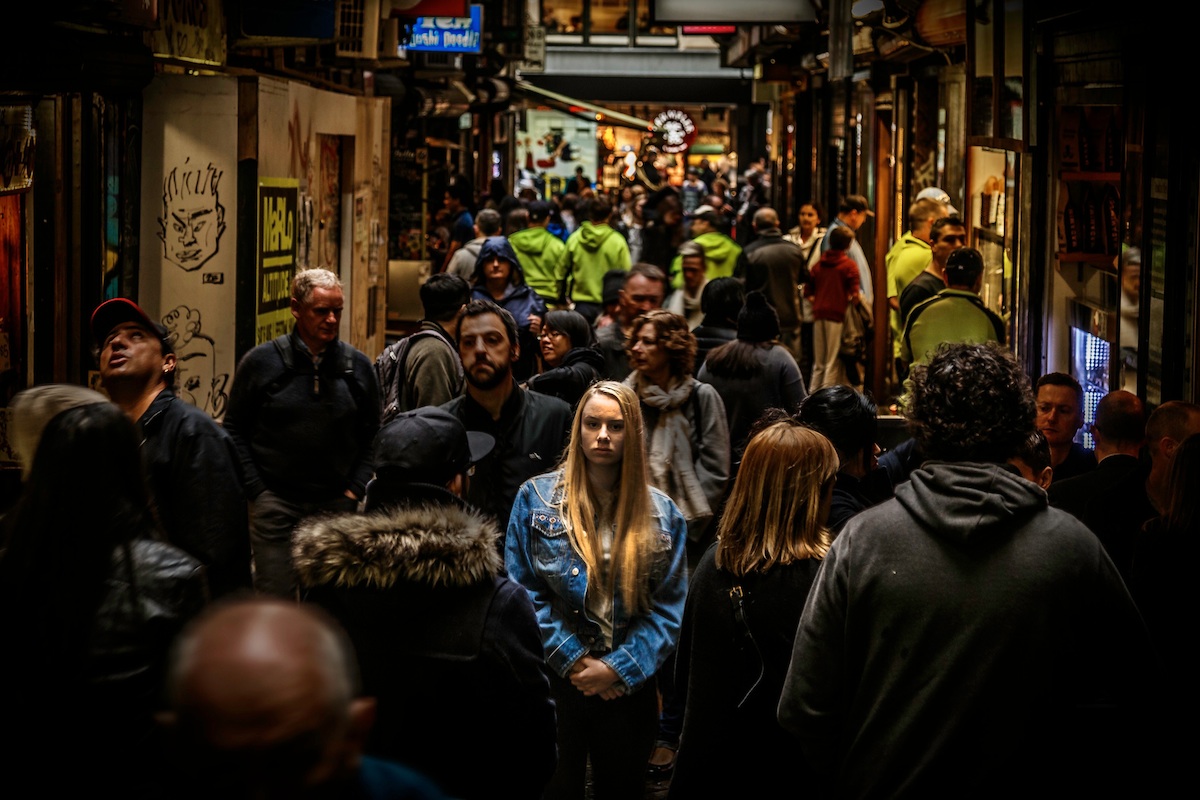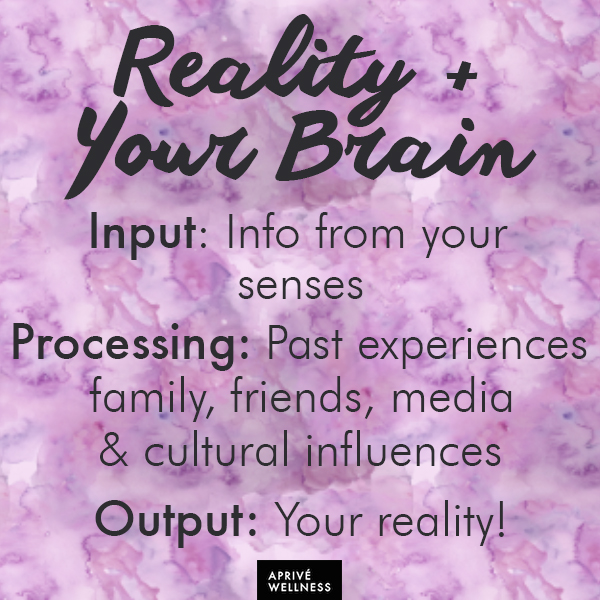
Aprivé Wellness Blog
Top 5 reasons you’re not getting enough sleep
In modern society, we’re sleeping less than ever before with almost one in two people surviving on six hours or less sleep a night. In 1942 that number was less than 8% of the population. Why are we sleeping less than ever before?
Stunning bedrooms at Wellness Retreat Svarga Loka, Bali
1. Longer commutes
Housing prices and urban sprawl mean people are commuting for longer than ever. Rather than skip a cup of tea with their partners though, most people are foregoing sleep to maintain the same amount of interaction with their families.
2. Screen time past lights out
If you relish an end of the day catch up on your favourite Instagram accounts when your head is on the pillow, you’re starving your body of melatonin. Melatonin is the snazzy hormone that says ‘time to sleep’ and inducts your body into its sleep-ready state.
3. Saying “I’m busy” is a new trend
If you’re really busy, you’re probably not sleeping very much. Sadly, ‘being busy’ has become a badge of honour. In 2018 you’re far more likely to hear the man on the train next to you saying “I’m just so busy this week’ instead of ‘I had the best, longest sleep last night.’
Check out this story of how a Kiwi woman transitioned from busyness to calm here.
4. Caffeine is part of our daily routine
Coffee is delicious, but it stimulates the sympathetic nervous system which triggers the ‘fight or flight’ part of the brain, instead of the ‘rest and digest’ system that helps relax us. If you’re constantly ready to fight off a bear thanks to caffeine-induced adrenaline, you’re unlikely to be sleeping well.
Learn more about how too much caffeine can cause you to be 'Accidentally Anxious' below:
5. We’re always available thanks to tech
When your boss sends an urgent email at 9pm, you can’t really ignore it in this day and age. Luckily for most people, urgent late-night emails aren’t a reality, however most of us voluntarily check work emails and documents after leaving the office. By always being available, we’re less able to switch off our brains from ‘problem solving work mode’ to rest and relaxation mode that helps prepare us for sleep.
Here's the good news
By making a small change to your lifestyle and any of the things above, you can make a huge change to your sleep and energy levels.
Learn what small changes can make the greatest difference below:
What do you think makes it hard for you to sleep?
What's so wrong with emotion anyway?
Have you ever felt blue and told yourself “get over yourself. Just smile and be happy?” You’re not the only one. As a holistic practitioner, I've been lucky to meet and be treated by some of the most brilliant people around the world helping people rediscover their sense of self. Here's what I've learned.
Bottling up emotions is part of living in Western culture, and many holistic psychologists think suppressed emotions could be the reason psychosomatic disorders like depression, anxiety and insomnia are on the rise.
As the West looks more and more to the East for guidance on wellbeing, we’re discovering that healing inside, rather than outside ourselves could be the key to a more balanced life, mind and heart.
In modern Western culture, feelings are grouped into two categories; good and bad. Anger, pain, guilt, fear and shame get stuffed into the bad group, while joy, passion and love are in the good group.
Life is like a box of chocolates
"Life is like a box of chocolates, you never know what you’re gonna get,’” (thanks Forest) so you may have encountered some pretty tough stuff that causes you to feel strong emotions.
If a parent left you when we were young, you may feel ashamed of having a parent you didn’t feel loved you. You might feel fear that other people in your life will leave you too. But! Imagine if you told someone that! You’d feel weak and ridiculous! So you pretend you’re fine, even convincing yourself your fine and burying your feelings so deep, you don’t know they’re there.
We’re programmed to avoid bad feelings at all costs. So we put on a smile, and go about our daily lives. We might even think people won't like us without our mask on, so instead of connecting with people, we connect with other things like a dependent partner, social media, drugs, alcohol, sex, food, exercise, eating disorders and other dependencies.
What causes addiction? Easy, right? Drugs cause addiction. But maybe it is not that simple. This video is adapted from Johann Hari's New York Times best-selling book 'Chasing The Scream: The First and Last Days of the War on Drugs.'
Essentially, we put a bandaid on the feelings and we pretend they’re not there. But what happens when you leave a bandaid on? Slowly, the adhesive wears away, and it starts to slip, until it’s fallen off completely.
When we bottle up emotions for too long, they end up showing up in different ways.
We may be the absolute picture of composure at work, then get home and scream at our partner for not replacing the toilet roll.
The shield around our feelings begins to crack, and we take it out on those closest to us.
Get Comfy with ‘Bad’ Emotions
Nigel McFarlane, psychotherapist and holistic counsellor of the Ayusha Wellbeing Clinic says we need to be able to experience pain, fear, shame, loneliness, and sadness, and not run away from them. Instead of slapping on your happy mask or turning to wine on a lonely night, what if you could just experience feeling lonely while reminding yourself you’re complete within yourself?
If we experience these feelings, and can see them objectively, we’re less likely to be overwhelmed by them. We come to know them, and without latching onto them, we can see them come and go as they will do throughout our lives.
Think of it like meditation. Many meditations teach you to notice your thoughts as they come, but try to watch them pass you by, rather than digging deeper into the thought. Of course, if you’ve experienced trauma or are struggling with elements of your past, seeking help from a trained professional is the best place to start.
Take responsibility for your feelings
Pia Mellody, an incredible professional working with addiction and co-dependency says your feelings are yours. No one can make you feel a certain way.
Have you ever heard someone say “I didn’t want to do it, but she made me.” These statements always sound ridiculous don't they? You know no one can make you do something you don’t want to do, much like no one can make you feel a certain way. Pia Mellody suggests changing the way you communicate feelings and taking ownership of them, rather than blaming them on others.
eg. When you came home and slammed the door, you made me furious. You’re so selfish you knew I was sleeping.
The response to this will never be good. But what about this?
eg. I'm feeling angry about last night and I wanted to tell you so I can move on. When you came home and slammed the door I felt angry. I was asleep and I also got a fright.
Ultimately though, not latching onto our emotions can be difficult, particularly when we’re having a tough time in many areas of our lives. Here are some ways to make it easier:
1. Yoga
Yoga not only teaches you to stay calm in the face of stress with metered breathing, it also teaches you to appreciate your body and what it can do. This helps to build that understanding of ‘inner self’ so when you’re lonely, you don’t feel worthless. You feel alone in yourself, but that self is pretty great!
Yoga/Pilates fusion at an Aprivé Wellness Retreat
2. Breathing and meditation
There are now hundreds of medical journals showing the benefits meditation has on the mind; not just for clarity of thought, but in conflict resolution, ability to problem solve and to control your thoughts. Luckily, the benefits aren't only cognitive.
Meditation and breathing also changes the parasympathetic nervous system response and switches off your stress response to help keep you calm, which means when you experience tough emotions, you’re able to observe them in a controlled way, rather than become overwhelmed.
3. Remind yourself emotions are good
Feelings and emotions are how we’re able to experience love and joy, but fear and loneliness are also huge part of our lives. Instead of putting on your mask, try sitting with your feelings; whether they’re happy or sad. Notice how it feels to experience them, and see them as a part of you that ebbs and flows. Don't condemn yourself, or others for showing emotion.
4. Share your feelings with people close to you
Sharing feelings is tough, and makes us feel weak and vulnerable, but maybe that’s what it takes to have a more meaningful life?
I’m certainly no master at acknowledging emotions. I’m much more of a ‘put on a happy face and get on with it’ kinda gal, but after being lucky to have worked in holistic wellbeing around the world for the past few years, I’m learning the bandaid fix is not sustainable. We have to deal with those things we’ve buried away as they’ll find their way up to the surface when we least expect.
One part of dealing with those things is telling the ones we love how we feel; not just negatives but positives too. This creates real, meaningful connections with the people around us. Communicating emotions can open us up to those true friendships and partnerships that generate the emotional support many people in the Western world are searching for.
As the West looks to the East for more and more spiritual guidance, we’re learning that looking inside ourselves and noticing our emotions, then dealing with our own inner pain and not being shy to share it could be the key to happier, more fulfilling lives.
What do you think?
Free Workshop in Ubud Bali - Your Beautiful Spine
Feb 15th - Svarga Loka Resort
I'm so thrilled to be in Bali at the stunning Svarga Loka Resort, and Ayusha Wellbeing Clinic. The setting of this incredible clinic feels so remote, surrounded by dense jungle, yet it's only a few moments walk to Ubud landmarks like Alchemy Cafe and the oldest temple in Ubud.
Yoga is so central to the Ubud community, but I've spoken to so many yogis who experience back and neck pain. This is certainly not anything they're doing wrong, it's just a consequence of our modern lifestyles. Unfortunately, even one hour of yoga a day can't make up for eight hours of sitting (of course it helps!) So! I'm hosting a free workshop at Svarga Loka to help teach Ubud locals all about spinal pain. Why it happens, why it doesn't go away, and the best things you can do to keep it out of your life.
Come and enjoy this one -hour workshop, and try our Dragonfruit Kombucha, all for free! BYO yoga mat if you wish, but others will be provided. See you there!
WHEN; Wed Feb 15th 6:30pm - 7:30pm
WHERE: Svarga Loka Resort
More Info here: https://www.facebook.com/events/163881950777809/
Reality Bites: How to Change Yours
How Your Brain Creates Your World Part 1
Our brains are incredible. They receive information, process it and try to make sense of it, then create an output based on that information. That output is your reality.
Your reality isn’t the world around you, it’s how your brain processes the world around you.
The Creation of Your Reality
What happens when the input doesn’t match the output?
Sometimes, when your brain processes the information it receives, it doesn’t work out as smoothly as you’d like. Sometimes it seems your brain is almost confused! Here are a few examples:
Reality and Placebo
Placebo drugs are a great way to understand how your brain constructs your reality. Let’s take paracetamol for example. When you take paracetamol, an analgesic drug that acts on the central nervous system, you experience less pain. It really works!
If you’re in pain and take a placebo, thinking it’s paracetamol, your brain uses its own natural pathways to create your own inherent ‘heroine’ that also decreases your pain. You get the same result.
1. The input: You take a pill you’re told is Paracetamol.
2. Your brain processes this information based on your past experiences with pain medicine, its effectiveness, plus your body’s own reactions to pain responses.
3. Your reality: You feel less pain. Hooray!
The input (a fake pill) doesn’t match the output! (no pain!) because of the way your brain processes the information it receives.
Think about the things that influence you most. People you spend the most time with, TV shows you watch, magazines your subscribe to. All these things shape your reality, and create your world. Are they creating the world you want them to?
Check back in for Part 2 where we look at reality and pain.
Healthy Travel Tips
In-Room Stretches For Healthy Hips
Do your hips and back feel stiff and stuck after travelling on a plane, or even after a long drive? Don't worry, there are easy stretches you can do right in your own hotel room! Give them a try.
Firstly: Why do you need to mobilise the hip?
When you sit all day, your hips are constantly flexed at 90 degrees. As the hip is a ball and socket joint, it's designed to move around in many directions, so it doesn't like being stuck at 90 degrees all day. The muscles that attach to the femur, plus the glutes (butt muscles) and your hip flexors become short and weak from too much sitting, so stretching and moving is the best thing you can do to ensure you have a healthy hip joint for longer.
1. Sitting Gluteal Stretch
This stretch can be done in your plane seat, at a desk, or on the bed of your hotel room.
While you’re sitting, bring your right ankle up to rest on your left knee.
With a straight back, gently lean forward, placing gentle pressure from your right forearm onto your right knee, gently easing it toward the floor.
Hold as you count to thirty,
Gently let go and repeat on the left.
Pic by Lifehack.org
2. In-Room Hip Flexor Stretch
This stretch is perfect to when you arrive at your hotel room. It's a great way to release the hip flexors that have been shortened throughout your trip.
Standing up tall, place the shin of your right leg on a chair or on your bed, making sure you left foot is straight.
Standing on the left leg, bend your left knee into a lunge position
Hold as you count to thirty
Gently let go and repeat on the left.
3. Spinal Massage & Child’s Pose
Lying on your back, bring your knees to your chest and gently rock side to side. This helps to release the erector spinae muscles that run parallel to the spine.
Next, on your hands and knees, gently rock back until you’re sitting on your heels, and stretch your arms forward for a real spine stretch into child’s pose. Rest here for a few breaths. If it’s more comfortable, place your hands down by your side instead of stretching them out in front.
4. Restore mobility with a spinal roll down
The hip joint, pelvis and lower spine are all connected, with many muscles joining these bones together. A spinal roll down is a great way to let gravity help you gently stretch the muscles and nerves of your lower spine and pelvic region. Check out the video below to learn how to do a spinal roll down.
Standing up tall and breathe in
Breathe out as you gently tuck your chin to your chest and roll all the way down to the floor.
Let your arms go floppy and your head hang.
Breathe in at the bottom, and breathe out as you roll all the way up to the top, thinking of stacking your vertebrae, one on top of the other.
You can repeat this roll-down a few times until you feel ready to sit back down.
If you get hip pain, low back pain or feel sluggish after travelling, try the stretches above when you arrive in your hotel room. If you're not sure how to get started with moving better at work, see a good Physiotherapist, or get in touch with me to get help, and start living your healthiest life at home, and when you travel.
Need More Motivation To Live Healthy?
Wellness Podcast - In Case You Missed It!
Have you ever experienced a slump or a set back? This podcast will make you realise you're not alone.
Listen to my interview on Wellness Force in the USA.

















